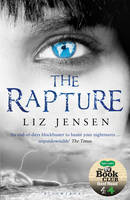
psychotherapist and the nuts and bolts of her work would position her more as art therapist. As mentioned in the introduction to this series of posts, such subtle distinctions between the various professions can be difficult to untangle from the outside, and may not matter so much to the average reader, but for me it was as jarring as a switch of point of view mid-scene. But setting these brand distinctions aside, her credibility as any kind of mental health professional is questionable and, I'm afraid, detracts from an otherwise page-turning plot.
While the wounded healer is something of a literary cliché, it's one with some basis in fact, and Bethany's ability to tease out Gabrielle's painful past is chillingly portrayed. The role-reversal dance between client and therapist trips and turns towards the climax, but I'd have been more convinced if Gabrielle had been presented as a well-meaning but undereducated assistant rather than someone who might have had several years training and ongoing clinical supervision. (I say might, although, given that this takes place in the not too distant future, it could be that there has been such disinvestment in NHS and education budgets, that training has been pared down to a matter of weeks and art therapy, rather than being a separate profession as it is now, is an optional module on the first degree in psychology – which might account for Gabrielle not knowing that it would be a terrible breach of confidentiality to display the other patients' art work on the walls of her therapy room.) Fiction writers are good enough lay psychologists in general, and this is one case where I think bringing in a supposed real psychologist weakens rather than strengthens the case.
Also, I'm not sure if it's Liz Jensen or Gabrielle who wants to tell us that
Psychological principle has it that buried traumas must be exhumed and dealt with before a patient can move on. (p13)
Am I being too picky?
Do share your own impressions of Gabrielle.
For the next in this series I'll be bringing another take on trauma, with Aminatta Forna's The Memory of Love.





















 RSS Feed
RSS Feed





















